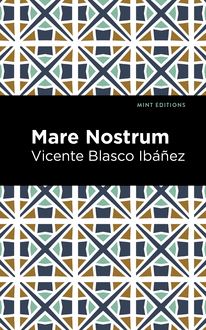-
 Univers
Univers
-
 Ebooks
Ebooks
-
 Livres audio
Livres audio
-
 Presse
Presse
-
 Podcasts
Podcasts
-
 BD
BD
-
 Documents
Documents
-
- Cours
- Révisions
- Ressources pédagogiques
- Sciences de l’éducation
- Manuels scolaires
- Langues
- Travaux de classe
- Annales de BEP
- Etudes supérieures
- Maternelle et primaire
- Fiches de lecture
- Orientation scolaire
- Méthodologie
- Corrigés de devoir
- Annales d’examens et concours
- Annales du bac
- Annales du brevet
- Rapports de stage
La lecture à portée de main
Vous pourrez modifier la taille du texte de cet ouvrage
Découvre YouScribe en t'inscrivant gratuitement
Je m'inscrisDécouvre YouScribe en t'inscrivant gratuitement
Je m'inscrisEn savoir plus
Vous pourrez modifier la taille du texte de cet ouvrage
En savoir plus

Description
Esther Waters (1894) is a novel by George Moore. Considered his best novel, it was an immediate critical and commercial success, and has since been adapted several times for theater, film, and television. Like much of Moore’s work, Esther Waters shows the influence of French naturalist writer Émile Zola, who sought to portray the influence of heredity and social environment on the lives of characters without shying away from poverty, sex, disease, and suffering. Following her father’s death and her mother’s marriage to an abusive Londoner, Esther Waters arrives at the home of the Barfield family in Shoreham to work as a kitchen maid. There, she tries to work hard to support herself, but is soon seduced by a footman named William Latch. When he elopes with his employer’s niece, Esther is left to hide her pregnancy for as long as possible. Discovered, she is dismissed, and soon thereafter gives birth to a healthy boy. Unmarried and poor, she makes the decision to raise Jackie as a single mother while seeking employment in London. Tragic and truthful, Esther Waters is the story of a woman who defies Victorian convention and suffers for nothing more than being born into poverty. With a beautifully designed cover and professionally typeset manuscript, this edition of George Moore’s Esther Waters is a classic of Irish literature reimagined for modern readers.
Sujets
Informations
| Publié par | Mint Editions |
| Date de parution | 16 novembre 2021 |
| Nombre de lectures | 0 |
| EAN13 | 9781513293851 |
| Langue | English |
| Poids de l'ouvrage | 1 Mo |
Informations légales : prix de location à la page 0,0500€. Cette information est donnée uniquement à titre indicatif conformément à la législation en vigueur.
Extrait
Esther Waters
George Moore
Esther Waters was first published in 1894.
This edition published by Mint Editions 2021.
ISBN 9781513291000 | E-ISBN 9781513293851
Published by Mint Editions®
minteditionbooks.com
Publishing Director: Jennifer Newens
Design & Production: Rachel Lopez Metzger
Project Manager: Micaela Clark
Typesetting: Westchester Publishing Services
C ONTENTS I II III IV V VI VII VIII IX X XI XII XIII XIV XV XVI XVII XVIII XIX XX XXI XXII XXIII XXIV XXV XXVI XXVII XXVIII XXIX XXX XXXI XXXII XXXIII XXXIV XXXV XXXVI XXXVII XXXVIII XXXIX XL XLI XLII XLIII XLIV XLV XLVI XLVII XLVIII
I
S he stood on the platform watching the receding train. A few bushes hid the curve of the line; the white vapour rose above them, evaporating in the pale evening. A moment more and the last carriage would pass out of sight. The white gates swung forward slowly and closed over the line.
An oblong box painted reddish brown and tied with a rough rope lay on the seat beside her. The movement of her back and shoulders showed that the bundle she carried was a heavy one, the sharp bulging of the grey linen cloth that the weight was dead. She wore a faded yellow dress and a black jacket too warm for the day. A girl of twenty, short, strongly built, with short, strong arms. Her neck was plump, and her hair of so ordinary a brown that it passed unnoticed. The nose was too thick, but the nostrils were well formed. The eyes were grey, luminous, and veiled with dark lashes. But it was only when she laughed that her face lost its habitual expression, which was somewhat sullen; then it flowed with bright humour. She laughed now, showing a white line of almond-shaped teeth. The porter had asked her if she were afraid to leave her bundle with her box. Both, he said, would go up together in the donkey-cart. The donkey-cart came down every evening to fetch parcels… That was the way to Woodview, right up the lane. She could not miss it. She would find the lodge gate in that clump of trees. The man lingered, for she was an attractive girl, but the station-master called him away to remove some luggage.
It was a barren country. Once the sea had crawled at high tide half-way up the sloping sides of those downs. It would do so now were it not for the shingle bank which its surging had thrown up along the coast. Between the shingle bank and the shore a weedy river flowed and the little town stood clamped together, its feet in the water’s edge. There were decaying shipyards about the harbour, and wooden breakwaters stretched long, thin arms seawards for ships that did not come. On the other side of the railway apple blossoms showed above a white-washed wall; some market gardening was done in the low-lying fields, whence the downs rose in gradual ascents. On the first slope there was a fringe of trees. That was Woodview.
The girl gazed on this bleak country like one who saw it for the first time. She saw without perceiving, for her mind was occupied with personal consideration. She found it difficult to decide whether she should leave her bundle with her box. It hung heavy in her hand, and she did not know how far Woodview was from the station. At the end of the platform the station-master took her ticket, and she passed over the level-crossing still undecided. The lane began with iron railings, laurels, and French windows. She had been in service in such houses, and knew if she were engaged in any of them what her duties would be. But the life in Woodview was a great dream, and she could not imagine herself accomplishing all that would be required of her. There would be a butler, a footman, and a page; she would not mind the page—but the butler and footman, what would they think? There would be an upper-housemaid and an under-housemaid, and perhaps a lady’s-maid, and maybe that these ladies had been abroad with the family. She had heard of France and Germany. Their conversation would, no doubt, turn on such subjects. Her silence would betray her. They would ask her what situations she had been in, and when they learned the truth she would have to leave disgraced. She had not sufficient money to pay for a ticket to London. But what excuse could she give to Lady Elwin, who had rescued her from Mrs. Dunbar and got her the place of kitchen-maid at Woodview? She must not go back. Her father would curse her, and perhaps beat her mother and her too. Ah! he would not dare to strike her again, and the girl’s face flushed with shameful remembrance. And her little brothers and sisters would cry if she came back. They had little enough to eat as it was. Of course she must not go back. How silly of her to think of such a thing!
She smiled, and her face became as bright as the month: it was the first day of June. Still she would be glad when the first week was over. If she had only a dress to wear in the afternoons! The old yellow thing on her back would never do. But one of her cotton prints was pretty fresh; she must get a bit of red ribbon—that would make a difference. She had heard that the housemaids in places like Woodview always changed their dresses twice a day, and on Sundays went out in silk mantles and hats in the newest fashion. As for the lady’s-maid, she of course had all her mistress’s clothes, and walked with the butler. What would such people think of a little girl like her! Her heart sank at the thought, and she sighed, anticipating much bitterness and disappointment. Even when her first quarter’s wages came due she would hardly be able to buy herself a dress: they would want the money at home. Her quarter’s wages! A month’s wages most like, for she’d never be able to keep the place. No doubt all those fields belonged to the Squire, and those great trees too; they must be fine folk, quite as fine as Lady Elwin—finer, for she lived in a house like those near the station.
On both sides of the straight road there were tall hedges, and the nursemaids lay in the wide shadows on the rich summer grass, their perambulators at a little distance. The hum of the town died out of the ear, and the girl continued to imagine the future she was about to enter on with increasing distinctness. Looking across the fields she could see two houses, one in grey stone, the other in red brick with a gable covered with ivy; and between them, lost in the north, the spire of a church. On questioning a passer-by she learnt that the first house was the Rectory, the second was Woodview Lodge. If that was the lodge, what must the house be?
Two hundred yards further on the road branched, passing on either side of a triangular clump of trees, entering the sea road; and under the leaves the air was green and pleasant, and the lungs of the jaded town girl drew in a deep breath of health. Behind the plantation she found a large white-painted wooden gate. It opened into a handsome avenue, and the gatekeeper told her to keep straight on, and to turn to the left when she got to the top. She had never seen anything like it before, and stopped to admire the uncouth arms of elms, like rafters above the roadway; pink clouds showed through, and the monotonous dove seemed the very heart of the silence.
Her doubts returned; she never would be able to keep the place. The avenue turned a little, and she came suddenly upon a young man leaning over the paling, smoking his pipe.
“Please sir, is this the way to Woodview?”
“Yes, right up through the stables, round to the left.” Then, noticing the sturdily-built figure, yet graceful in its sturdiness, and the bright cheeks, he said, “You look pretty well done; that bundle is a heavy one, let me hold it for you.”
“I am a bit tired,” she said, leaning the bundle on the paling. “They told me at the station that the donkey-cart would bring up my box later on.”
“Ah, then you are the new kitchen-maid? What’s your name?”
“Esther Waters.”
“My mother’s the cook here; you’ll have to mind your p’s and q’s or else you’ll be dropped on. The devil of a temper while it lasts, but not a bad sort if you don’t put her out.”
“Are you in service here?”
“No, but I hope to be afore long. I could have been two years ago, but mother did not like me to put on livery, and I don’t know how I’ll face her when I come running down to go out with the carriage.”
“Is the place vacant?” Esther asked, raising her eyes timidly, looking at him sideways.
“Yes, Jim Story got the sack about a week ago. When he had taken a drop he’d tell every blessed thing that was done in the stables. They’d get him down to the ‘Red Lion’ for the purpose; of course the squire couldn’t stand that.”
“And shall you take the place?”
“Yes. I’m not going to spend my life carrying parcels up and down the King’s Road, Brighton, if I can squeeze in here. It isn’t so much the berth that I care about, but the advantages, information fresh from the fountain-head. You won’t catch me chattering over the bar at the ‘Red Lion’ and having every blessed word I say wired up to London and printed next morning in all the papers.”
Esther wondered what he was talking about, and, looking at him, she saw a low, narrow forehead, a small, round head, a long nose, a pointed chin, and rather hollow, bloodless cheeks. Notwithstanding the shallow chest, he was powerfully built, the long arms could deal a swinging blow. The low forehead and the lustreless eyes told of a slight, unimaginative brain, but regular features and a look of natural honesty made William Latch a man that ten men and eighteen women out of twenty would like.
“I see you have got books in that bundle,” he said at the end of a long silence. “Fond of readin’?”
“They are mother’s books,” she replied, hastily. “I was afraid to leave them at the station, for it would be easy for anyone to take one out, and I should not miss it until I undid the bundle.”
“Sarah Tucker—that’s the upper-housemaid—will be after you to lend them to her. She is a wonderful reader. She has read every story that has come out in Bow Bells fo
-
 Univers
Univers
-
 Ebooks
Ebooks
-
 Livres audio
Livres audio
-
 Presse
Presse
-
 Podcasts
Podcasts
-
 BD
BD
-
 Documents
Documents
-
Jeunesse
-
Littérature
-
Ressources professionnelles
-
Santé et bien-être
-
Savoirs
-
Education
-
Loisirs et hobbies
-
Art, musique et cinéma
-
Actualité et débat de société
-
Jeunesse
-
Littérature
-
Ressources professionnelles
-
Santé et bien-être
-
Savoirs
-
Education
-
Loisirs et hobbies
-
Art, musique et cinéma
-
Actualité et débat de société
-
Actualités
-
Lifestyle
-
Presse jeunesse
-
Presse professionnelle
-
Pratique
-
Presse sportive
-
Presse internationale
-
Culture & Médias
-
Action et Aventures
-
Science-fiction et Fantasy
-
Société
-
Jeunesse
-
Littérature
-
Ressources professionnelles
-
Santé et bien-être
-
Savoirs
-
Education
-
Loisirs et hobbies
-
Art, musique et cinéma
-
Actualité et débat de société
- Cours
- Révisions
- Ressources pédagogiques
- Sciences de l’éducation
- Manuels scolaires
- Langues
- Travaux de classe
- Annales de BEP
- Etudes supérieures
- Maternelle et primaire
- Fiches de lecture
- Orientation scolaire
- Méthodologie
- Corrigés de devoir
- Annales d’examens et concours
- Annales du bac
- Annales du brevet
- Rapports de stage



















